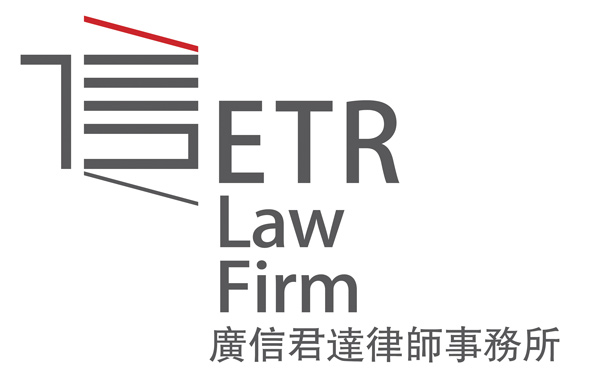After multiple rounds of deliberations, the fourth draft amendment to China’s Company Law was formally adopted on 29 December 2023 and will come into effect on 1 July 2024.
The corporate capital regime is one of the three pillars of China’s Company Law, which, together with the corporate governance, and the shareholders and equity regimes, form the modern company law system. China’s corporate legislation shows a similar trajectory with that of international commercial laws, undergoing a gradual relaxation process while transferring its focus from the credibility of capital to the credibility of assets.
The new Company Law has made sweeping changes to the corporate capital regime, including the following sections, which we believe to be particularly worth companies’ attention.

Partner
ETR Law Firm
Shareholders of all companies are obliged to pay their subscribed capital in full within five years.
This requirement does not distinguish between established players and up-and-comers, but the issues requiring the most imminent attention may differ.
Most registered companies will opt for capital reduction or dissolution, which easily triggers disputes between the company, and its shareholders and creditors. Therefore, the company should take appropriate measures to deal with disputes that typically follow such developments.
A company should pay attention to the following:
- Before capital reduction or dissolution, it must give creditors prior notice and publish an announcement as required to ensure they are informed of the reasons and effects thereof;
- The company should develop a reasonable and compliant capital reduction or dissolution plan, factoring in its capital structure, asset status and business development; and
- When a dispute arises, the company should take appropriate measures to address it, communicate with all parties involved and ensure its operations are not affected.
For yet-to-be-established companies, special attention should be paid to the compliance of shareholders’ capital contributions to avoid any problem with unpaid or withdrawn capital due to the use of “bridge loans”.
A shareholder forfeiture regime was introduced.
The new Company Law provides that after a limited liability company is established, if the board of directors finds that any shareholder failed to pay their capital contribution in full within the time limit, the company should demand the capital contribution in writing. If the shareholder still fails to fulfil the obligation within the grace period, the company may, by resolution of the board of directors, issue a notice of forfeiture to the shareholder, who loses their equity rights in the unpaid capital contribution as from the date of notice.
It is worth noting that the notice of forfeiture is issued by the board of directors, yet directors are usually shareholders themselves or nominated by shareholders. Whether the forfeiture regime will work effectively remains to be seen. How to standardise the forfeiture procedures and ensure the reasonableness, legality and effectiveness of applying this regime are worth studying after the new Company Law takes effect.
An authorised capital regime for joint-stock companies was introduced.
A joint-stock company may only issue some of its shares on establishment. In this way, the board of directors may opt to issue the remaining shares later depending on business needs. The change brought about an authorised capital regime where a company is not necessarily required to issue all shares in one go, but is allowed to authorise its board of directors to issue the remaining portion.
This approach makes it easier to establish a joint-stock company, simplifies the procedures of share issuance, and improves the efficiency and flexibility of corporate financing. It also addresses the investors’ concerns and reasonable expectations on policies, while placing higher demands from the board of directors.
For example, if the board was to misjudge the operating conditions of the company and make an inappropriate decision to issue shares, it will affect the company’s normal operation and add to difficulties in trading. Furthermore, if the board exhibited positive actions or negative non-actions, the subsequent internal and external accountability issues should also be further clarified by judicial interpretations.
Companies are allowed to issue no-par value shares and class shares.
The class shares regime featuring “weighted voting rights” has been introduced for the first time. Issuance of non-par value shares and class shares is a well-established international practice, and has seen sporadic use in pilot regions of China. The new Company Law goes beyond the principle of “equal voting rights for each share” adopted for many years, demonstrating a trend for internationalisation of China’s corporate legislation.
The new Company Law provides that all shares of a company may be issued with or without a par value in accordance with its articles of association. If par value shares are adopted, the amount of each share shall be equal, the issue price of each par value share shall not be less than the par value, and the amount of each par value share issued shall be stated in the articles of association. If no-par value shares are adopted, more than half of the proceeds from the share issuance shall be included in the registered capital. In addition, the company may convert par value shares into non-par value ones, or vice versa, in accordance with its articles of association.
Under the current macro-economic context, the introduction of no-par value shares, which can be issued at discount, will help enhance the financing efficiency of companies and improve the business environment in the market.
In addition, the new Company Law has legislatively introduced class shares, allowing a company to issue three classes of non-ordinary shares in accordance with its articles of association. It also clarifies that the articles of association should specify certain measures, such as the order of payment of undistributed profits or remaining property for class shares, number of votes and the protection of minority shareholders.
Calvin Yang is a partner at ETR Law Firm, Zhuang Yuan, an intern at the firm, also contributed to the article

No. 6 Zhujiang Dong Road
Guangzhou 510623, China
Tel: +86 20 3718 1333
Fax: +86 20 3718 1388
E-mail: yangchaonan@ertlawfirm.com





















